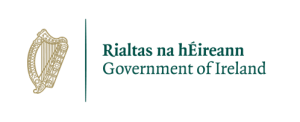Ana Liffey welcomes government announcement to establish a Citizens’ Assembly on Drugs Use
February 14, 2023
The Government has today (Tuesday 14/02/2023) agreed to establish a Citizens’ Assembly on Drugs Use.
The Citizens’ Assembly will be asked to consider the legislative, policy and operational changes the State could make to significantly reduce the harmful impacts of illicit drugs on individuals, families, communities and wider society.

Welcoming the Government decision, Government Chief Whip and Minister of State with responsibility for Public Health, Well Being and the National Drugs Strategy, Hildegarde Naughton T.D. said:
“I’m pleased to confirm that the Government has decided to proceed with the establishment of a Citizens’ Assembly on Drugs Use. The Assembly, which will consist of 99 members of the general public and an independent Chair, will be asked to examine the range of issues around illicit drugs use in Ireland. Very importantly, they will be asked to take into consideration the lived experience of people impacted by drugs use, as well as their families and communities, and to look at international best practice.”
Continuing, Minister Naughton said:
“Drug use affects all members of society, whether directly or through families and communities, and it imposes significant health and financial costs. Involving citizens in decision-making on drugs policy is therefore appropriate. I want to ensure that the voice of young people is heard at the Citizens Assembly, as they can be particularly impacted by drug use. To this end, I have initiated a consultation with young people through Comhairle na nÓg and youth drug projects in disadvantaged areas, which will be presented to the Citizens Assembly for its consideration. I expect we will also see an international component to the Citizens Assembly, to allow for an exchange of good practice with the British-Irish Council work sector on drugs, which Ireland chairs, the European Monitoring Centre for Drugs and Drug Addiction, and EU member states.”
Speaking to the next steps in advance of work commencing on the Citizens’ Assembly in April, Minister Naughton said, “I will bring forward a motion to the Dáil and Seanad Éireann next week, on behalf of the Government, to formally establish the Assembly.”

Welcoming the announcement; Tony Duffin, CEO of Ana Liffey Drug Project said,
“We welcome today’s announcement, by Minister Naughton, which fulfils a commitment within the, October 2020, Programme for Government to convene a Citizens’ Assembly to consider matters relating to drugs use. The Citizens’ Assembly process is now a well established part of Ireland’s democratic process. This Citizens’ Assembly is an important opportunity to consider how Ireland can better respond to the very significant impact illicit drugs has on Irish society.
Duffin continued:
We also welcome the acknowledgment of the importance of of the lived experience of people impacted by drug use – for our part; Ana Liffey, will support the people we serve to share their lived experience with the members of the Citizens Assembly on Drug Use. This is significant, as the evidence is clear that people who use drugs are stigmatised and marginalised. Having fellow citizens listen to them, and knowing that their experiences are informing the deliberations of the Citizens’ Assembly on Drug Use, has the potential to be a very empowering experience for those involved.“
About Citizens’ Assemblies:
Citizens’ Assemblies have become an important part of our democratic process, with previous forums deliberating on a variety of matters including Marriage Equality, the 8th Amendment of the Constitution, Climate Change, Gender Equality and, in 2022, Biodiversity Loss and the type of directly elected mayor and local government structures best suited for Dublin, and feeding directly in the formulation of proposals for constitutional reform.
Eligibility for membership of the Assemblies will follow the model introduced for last year’s Assemblies. This saw a widening of the selection process beyond those enrolled on the electoral register to include all residents in the State, opening up the membership to non-Irish and those normally hard-to-reach groups who, for a variety of reasons, are not on the electoral register.
In line with best international practice, recruitment will be done by a mailing campaign with 20,000 randomly-selected households invited to apply to participate in the Assembly. From those who respond indicating a willingness to take part, members will be selected on the basis of gender, age, geography and a number of other factors to ensure that they are broadly representative of wider society.
Citizens’ Assembly on Drugs Use – who and when:
The Citizens’ Assembly on Drugs Use will include an independent Chairperson and 99 members of the general public selected using a stratified random selection process based on the GeoDirectory of households across the country. Following the approach of previous Assemblies every effort will be made to ensure equality of voice among the membership.
It is anticipated that the Citizens’ Assembly on Drugs Use will commence in April and will conclude its work by the end of this year.




